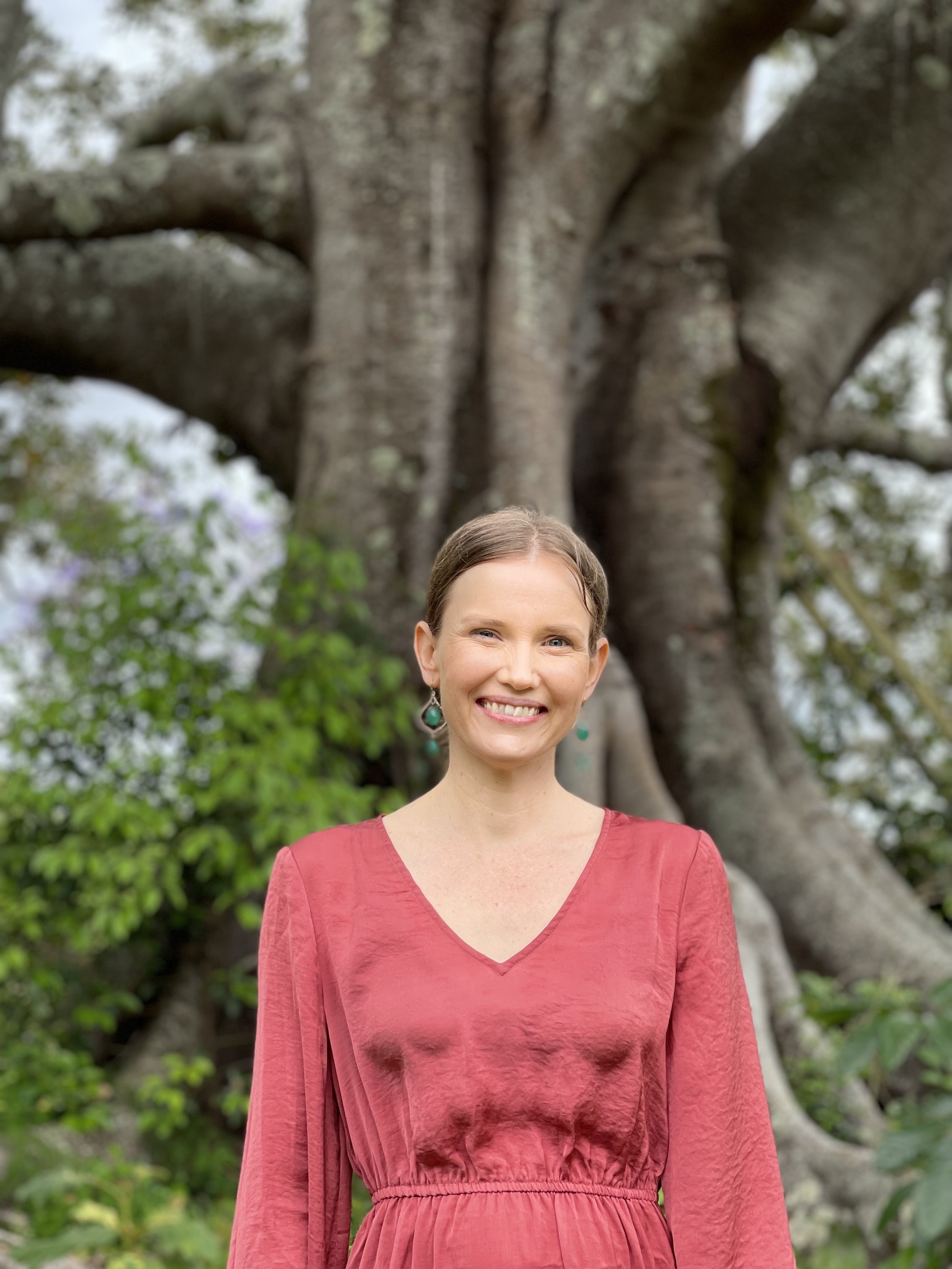Claire stephensen

Claire Stephensen
Integrative Somatic Trauma and Creative Arts Practitioner
RMT, MIACN, FECC, MMusThy
Claire (she/her) is a trauma-informed Music Therapist, Somatic and Embodiment Practitioner, Neuropsychotherapist, and Mother who is passionate about supporting women, those assigned female at birth and non-binary folks. She combines her clinical background in Neurobiology and Neuropsychotherapy with her passion for somatics and embodiment - exploring what it means to be well through music, creativity, movement and brain-based techniques.
Through working with Claire, people get to know, understand and express the language of their bodies. Informed by her clinical background and own experiences with recovery, Claire’s work helps people move through shame, grief and trauma. Her passion is helping people find compassion and care for themselves, re-discover their capacity for expression and deepen their sense of belonging to self, place and community.
To be in Claire’s medicinal spaces means to be valued, acknowledged, and deeply heard. She creatively weaves together sessions that incorporate whole-body listening, psychosomatic education, creative evidence-based practices and storytelling - demonstrating the kind of authentic, vulnerable and embodied leadership that de-stigmatises our most human expressions.
Claire is one part wild creative, one part neuroscience nerd, one part nature-dweller and one part fierce activist. She is fuelled by her insatiable curiosity about the human experience and by her courage to traverse the liminal terrain of grief, rage and shame - sharing lessons from her journeys within.
She artfully curates sessions, workshops and journeys that centre relational healing and community-based resourcing, understanding the inter-relationship between individual and collective recovery. A connector of all things, Claire is able to create pathways for more pleasure, play and creativity through co-regulation, deep attunement and a capacity to see wholeness and potential even in the darkest of moments.
Over the last 15 years, Claire’s work has spanned psychiatric hospitals, medical hospitals, community-based organisations, home visits with those on the margins, indigenous communities, domestic violence shelters and more recently private practice. She has worked in the context of mental health, complex and developmental trauma, chronic and persistent pain, neurodivergence, congenital and acquired disabilities, suicide prevention, child protection, grief and bereavement, emergency medicine, medical procedure support, palliative care and end-of-life support.
Current Approach
While Claire’s work has roots in scientific theory, is trauma-informed and brain-based – it has evolved into a body of work in its own right, The Cultures of Care.
The place where we disentangle ourselves (our muscle memory, physiological responses, thoughts, emotions, beliefs and thoughts) from cultures of shame, oppression and disconnection – and cultivate cultures of care within our bodies, our relationships, work, home and communities.
The ‘Cultures of Care’ have 6 core cultures for us to anchor into:
Safety
What it takes to feel emotional and physiological safety within our body, in relationship with others, our home, work, or the broader community. Physical safety is one thing - however, in a culture of shame and urgency, our body is constantly under threat and moves into a state of survival. As we tend to a culture of safety - we’re letting our bodies respond to threat while giving space for them to come back into balance.
Belonging
Welcoming all parts of ourselves, our families, teams, and communities into belonging. In a culture of shame and disconnection, we learn that only certain parts of ourselves or others are welcome. In a culture of care we experiment with what the marginalised parts of ourselves and others need to feel a genuine sense of belonging to our bodies, places, homes, workplaces, and broader communities - and wonder - what might happen if we feel like we genuinely belong here?
Consent
Cultivating a culture of consent is about attuning to what is not ok and allowing us to turn toward what we stand for. A culture of consent gives resistance, anger and shame a role to play as we learn how our bodies and actions communicate a ‘no’. A culture of consent is listening to the nuances of our thoughts, feelings and actions - so we can move with more integrity in the world with what is right for ourselves, relationships, families, teams, and communities.
Aliveness
Something we all want more of, right? More play, joy, happiness, creativity, and pleasure. From foundations of safety, turning our resistance and rejection into belonging, and holding our no with confidence – we can truly welcome all of the sensory delights that come with being alive – and weave it into every aspect of our lives. With aliveness, life can become more productive, easeful, and connected.
Responsibility
This is where we devote and tend the tasks, practices, feelings, thoughts and actions we are responsible for. It is often returning old stories to their rightful home - as well as giving space for others to take responsibility. Tending to a culture of responsibility is about getting real with what are self, shared and community-based responsibilities.
Integration
A culture of integration is where we let our bodies metabolise our ordinary and extraordinary experiences (just as we do with food). It’s just as much unhooking from the culture of perpetual action as it is to experiment with somatic and creative practices, rest and celebration.



